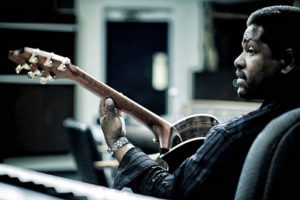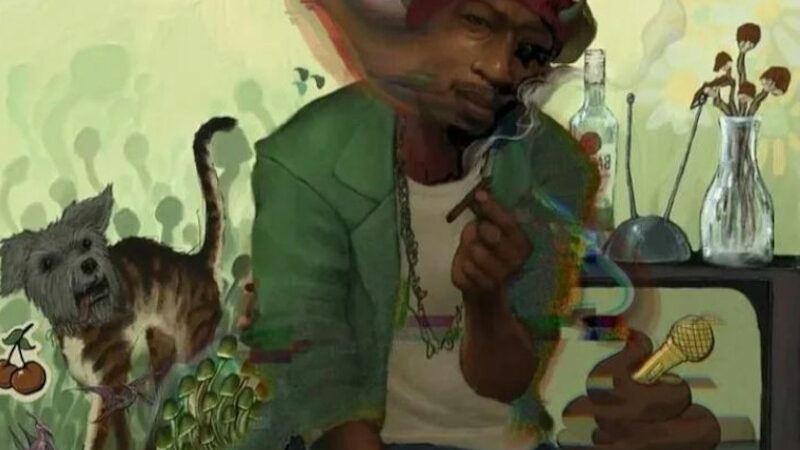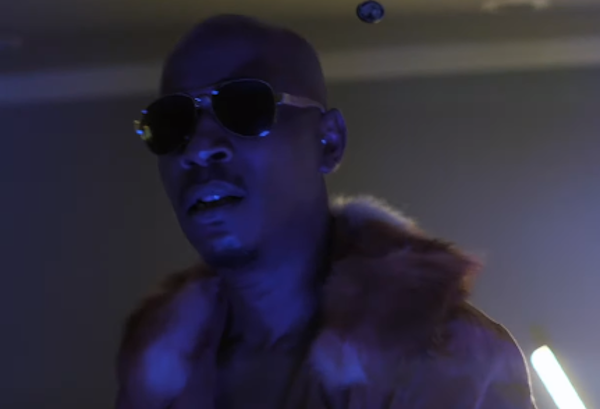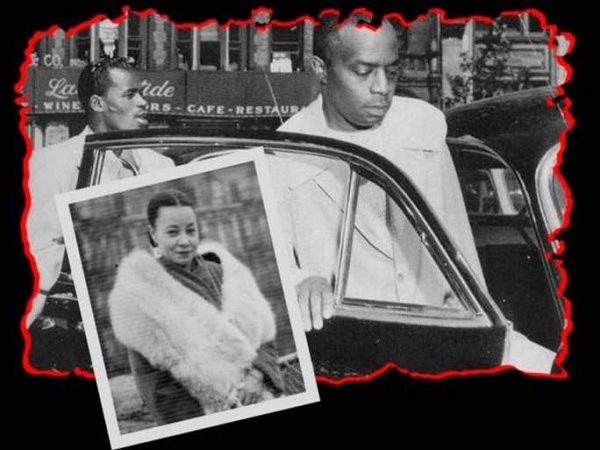Old School: noun (often of/from the old school) — used, usually approvingly, to refer to someone or something that is old-fashioned or traditional.
When Edwin Tony Nicholas makes records — whether as a songwriter, musician, arranger or producer — he still does it “old school,” with a focus on the music, the message and the artist. It’s a method that he has applied since making his production debut with Gerald Levert, and it’s a method that has defined Tony Nicholas’ love for, and understanding of, real R&B and all that the genre encompasses.
Nicholas’ discography is a who’s who of R&B, and includes Teddy Pendergrass, Keith Washington, Barry White, Regina Belle, Joe, Patti LaBelle and The O’Jays. His Cleveland studio, The Reel Thing, is named as homage to the days when the song was king and tape captured the sound. Planet Ill.com spoke with Nicholas about what he learned from working with LeVert, how production has and hasn’t changed, and why he loves producing classic artists.
Planet Ill: When did you discover music?
Edwin Tony Nicholas: That goes back to me trying to teach harmony parts to the folks in my church choir when I was 7 or 8 years old. That’s the honest to God truth! I was in third grade and I was frustrated that they couldn’t hear the harmony. I tried to write music for my toy instruments when I was in third or fourth grade. For Christmas in my fifth grade year I got a Kenner Close ’N Play 45 record player and my sister got a reel-to-reel. I traded with her so that I could start recording songs. I figured out that if I took the “erase” head off, I could record, and record on top of that, and the other stuff would still be there, but I couldn’t make mistakes because I couldn’t erase anything. I played guitar parts, sang, and my sisters and brother helped with handclaps.
Planet Ill: When did you begin playing music?
Edwin Tony Nicholas: When I was in fifth grade my sister brought a cello home and I tried to play upright bass on it! She can’t play it to this day. I knew I wanted to be a musician. Songs on the radio were easy in the 1970s. I listened to a lot of Earth, Wind & Fire. They were intricate parts but I could pick up enough to make four songs out of one of theirs. Maurice White was one of my biggest influences early on, but I was not aware of a producer as a job; I just wanted to make music. I loved The Emotions’ Rejoice, and I saw Maurice White’s name all over it, so I figured if he was the guy who made sounds like that, then I wanted to do that. To this day I have more Earth, Wind & Fire records than anyone else’s except Miles Davis. Their treatment of songs — the chords were not difficult; there were just a lot of them. My dad had a lot of John Coltrane, Stanley Turrentine and Miles Davis, and my mom listened exclusively to gospel: James Cleveland, Andre Crouch, Shirley Caesar, and the Mississippi Mass Choir. I got the building blocks that R&B was made from, but I didn’t get the R&B until later.
I play a bunch of instruments a little bit. I abandoned the guitar when I realized I was playing mostly bass lines, and I began playing bass. My mom had a three-point rule: Keep up a 3.0 GPA, also play in church, and if you come home smelling like anything other than deodorant, the deal is off! I started playing in clubs with local bands at about age 14. I had to stay in the dressing rooms between sets because of my age. Playing piano in church was enough to appease my mother so that I could play bass in bands. When I was in my early or mid-20s, LeVert was looking for a keyboard player and I told the musical director I played keyboards. Luckily enough, the songs were easy enough for me to pick up.
I didn’t own a keyboard, and I masqueraded as a keyboard player for 17 years. Gerald offered me the music director position after six months and I turned it down because I didn’t want to take the job of the guy who had hired me. Then he started the Gerald Levert Band and took me with him as music director and fired the LeVert band. Now I’m back on bass because of my love for it. In college I was the drummer for a 17-piece jazz band for three years, and for one year I was the bass player. I also directed choirs in college. They’d hand me the music and I’d try to make something of it. I have a degree in voice, but I only sang and arranged background vocals. I never aspired to sing.
Planet Ill: The fact that you didn’t take the music director job out of respect for someone else’s position speaks very highly of your character. Most people wouldn’t have cared.
Edwin Tony Nicholas: I wouldn’t have felt good taking the guy’s job. I believe that if you do right, it will come back to you, and if you don’t do right, that comes back to you as well.
Planet Ill: What did you originally plan to do with a music degree?
Edwin Tony Nicholas: I never expected to major in music. I thought I would major in economics. I had a full scholarship to Bowling Green State University in Ohio to play in the gospel choir. My father didn’t want me to go there. I lived in Toledo, 20 miles away, I was playing in three churches and a couple of bands, and he thought I wouldn’t concentrate on my studies there, plus he was concerned about the racial tension going on. I had a partial scholarship at Denison, where I was going to study economics or engineering, but when I got there I wanted to take private lessons on piano and bass because I’d never had lessons.
You can’t major in piano at a university if you’ve never studied. You have to have professional training or you won’t be considered for anything except voice, so I went for the voice major because they would give me those lessons if I majored in it, so I declared the major. There were so many requirements for the lessons that I became a music major — to the chagrin of my parents, who thought it was tantamount to throwing my life away. They had high hopes that I’d become a doctor or a lawyer.
My dad saw me ending up strung out on heroin — and I’ve never even tried any drug! I was asthmatic as a kid; I couldn’t even smoke! But parents want the best for their kids, and in his time, music was not the path to success. All I wanted was to produce music. I was going to pursue a degree in engineering to appease my parents.
So there I was, fixing copiers for a living with my music degree, which is what you do with a music degree if you’re not going to teach, which I had no intention whatsoever of doing. I was on my way to work, listening to the radio, and “(Pop, Pop, Pop, Pop) Goes My Mind” by LeVert came on. I said, “They need me.” It was just a thought. I didn’t even know they were from Cleveland. Their music director, Mike Ferguson, and a songwriter I was working with had a mutual friend.
That friend heard our songs and played them for Mike. He came to Columbus to meet me with the proposition of us becoming B-team producers for Gerald and Marc Gordon. At the same time, LeVert’s keyboardist left to join Freddie Jackson. I got a show tape from Mike and I replaced a phenomenal keyboardist. I knew I could never do what he did, and there were plenty of guys better than me, but I knew their material.
Planet Ill: When did your phone start ringing for production work outside of sessions for Gerald Levert?
Edwin Tony Nicholas: Until Joe, everything I did was with Gerald. Joe’s manager got a budget from Jive Records for Joe to do his album, and he bought a house and a car and turned in no songs. She was embarrassed that he had all this money and nothing to turn in, and she asked me to get a song done as a favor to her. Clive Calder owned the label, and he asked me to help Joe finish the record. I did seven songs, and six of them made the album. Joe and his manager had an argument about whether to use a live bass or keyboard bass on the seventh song. He resented her input and took that song off the record.
Four years later, they were looking for a song for a soundtrack and he sent in “I Wanna Know.” The song blew up and wouldn’t go away. It helped me a lot to get calls because it didn’t have Gerald’s name on it.
Joe- I Wanna Know
Planet Ill: Your production background is in tape. Any desire to go back?
Edwin Tony Nicholas: I was a tape guy longer than most people. I didn’t abandon it until 2000, which was pretty late in the game. I like the sound of tape, the warmth and natural compression that digital doesn’t have yet. It took me a long time to embrace the sound of digital. I love what you can do with it, but I miss the sound of tape. I understand the limitations of tape, but I still have a tape machine, and there are times now when I take a digital vocal, or drums or bass performance, and bounce it to tape and bounce it back just because miss the sound. I have an Otari MTR 90 from Sigma Sound Studios in Philadelphia; it’s the machine and console that Thom Bell used. It has history.
Gerald and I worked there back in the day because his dad did, and Mike Tarsia mixed us. I wanted THIS machine and console. Gerald and I were Mike’s biggest clients, so he sold it to me and then he had to rent it from me for a month while he figured out what to put in the room. I use that console to this day. I use Pro Tools HD and Cubase, but I still use that machine.
Planet Ill: Where do you record? Do you use only your studio? Travel? Send files?
Edwin Tony Nicholas: All of the above. I have a writing room and studio at home and a commercial studio [The Reel Thing]. I bought into an existing business and the name is a throwback to the era. It’s been there for 30 years, primarily as a media studio. They didn’t really do music until I came in. People in Cleveland are aware of it. I do most of my work there. I may e-mail a song to a buddy in Philadelphia or Atlanta, but mostly I work in my studio.
Elianne Halbersberg is a freelance writer whose work has been published by Guitar Edge, Mix, Premier Guitar, Gibson.com, Electronic Musician, Audio Media, Ink 19 and numerous other magazines and websites.
Follow Us on Twitter @ http://twitter.com/planetill
Join Us on the Planet Ill Facebook Group for more discussion
Follow us on Networked Blogs






3 thoughts on “Edwin Tony Nicholas:Old School Soul, Next School Sound Pt. 1”